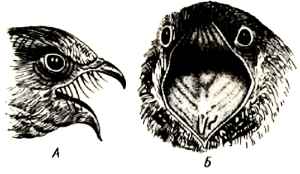Social cognitive perspective
Social cognitive theory is a highly influential fusion of behavioral, cognitive and social elements that was initially developed by educational psychologist Albert Bandura. In its earlier, neo-behavioral incarnation called social learning theory, Bandura emphasized the process of observational learning in which a learner's behavior changes as a result of observing others' behavior and its consequences. The theory identified several factors that determine whether observing a model will affect behavioral or cognitive change. These factors include the learner's developmental status, the perceived prestige and competence of the model, the consequences received by the model, the relevance of the model's behaviors and consequences to the learner's goals, and the learner's self-efficacy. The concept of self-efficacy, which played an important role in later developments of the theory, refers to the learner's belief in his or her ability to perform the modeled behavior.
Over the last decade, much research activity in educational psychology has focused on developing theories of self-regulated learning (SRL) and metacognition. These theories work from the central premise that effective learners are active agents who construct knowledge by setting goals, analysing tasks, planning strategies and monitoring their understanding. Research has indicated that learners who are better at goal setting and self-monitoring tend to have greater intrinsic task interest and self-efficacy; and that teaching learning strategies can increase academic achievement.
References & Suggested Readings
1 Bloom L. Language Development. – Cambridge (Mass.), 1970. – 564p.
2 Braine M.D.S. The insufficiency of a finite state model for verbal reconstructive memory // Psychonomic Science. – 1965. – V. 2. - p.132-138.
3 Bruner J.S. From communication to language // Cognition. V. 33. 1974–1975.
4 Carroll J.B. The Study of Language. – Cambridge (Mass.), 1953.
5 Carroll J.B. Language and thought. – Englewood Cliffs, 1964.
6 Chomsky N. A Review of Verbal Behavior, by B.F. Skinner // Language. V 35. – 1959. № 1.
7 Clark H.N., Clark E. V. Psychology of Language. An Introduction to Psycholinguistics. – New York, 1977. – 165p.
8 Diller, Karl Conrad. The Language Teaching Controversy. Rowley, Massachusetts: Newbury House, 1978. - 239p.
Lecture 3
Theme:Psychological features of speech acts and foreign language learning in stages
Subtheme:
1. Psychology of Education and Upbringing
2. Ontogenesis of speech act
Psychology of Education and Upbringing are considered in such sections of age psychology as – psychology of pre-school, junior school, high school, middle school children and psychology of student age. Any of this branches may be differentiated to smaller parts according to the educational subject or discipline.
We pointed out the part in which we are interested – Psychology of Teaching Foreign Languages (PTFL) If we want to compare this two disciplines, Psychology of Teaching Foreign Languages and Pedagogical Psychology, first of all we must delimit two notions the research subject and object.
Pedagogical Psychology and Age Psychology have common research objects – growing, developing and forming person (child, teenager, young man). The research subject of Pedagogical Psychology is psychological laws of education and upbringing. So Pedagogical Psychology studies laws in mastering knowledge and skills and individual peculiarities in these processes.
Дата добавления: 2016-07-27; просмотров: 2143;










